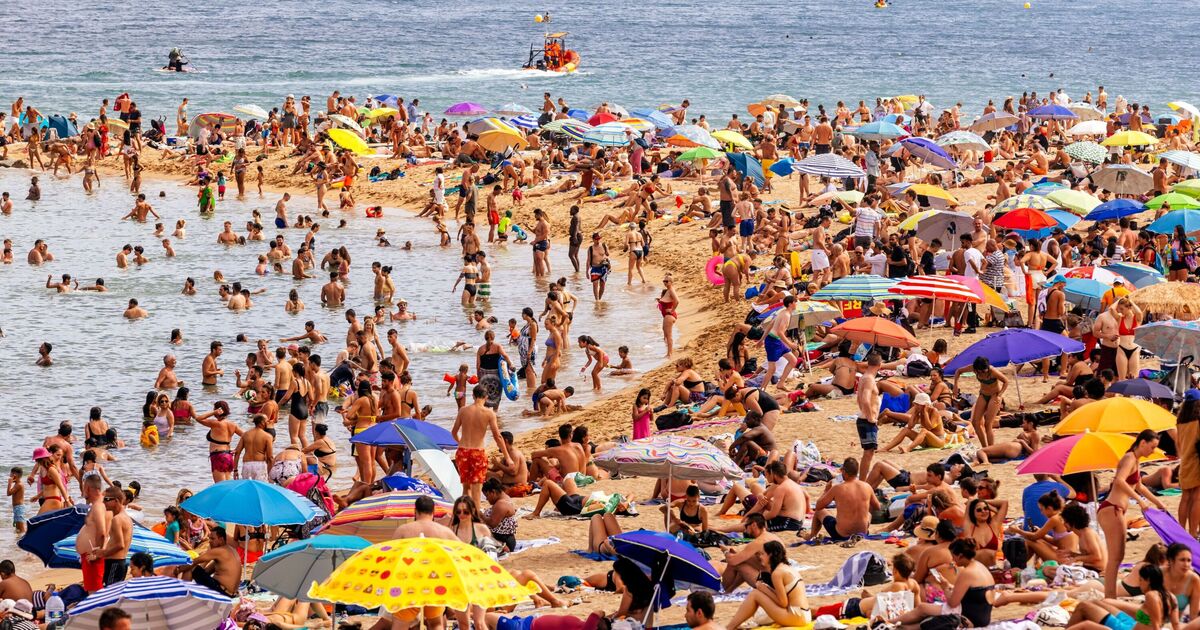British tourists visiting Spain have been warned of a strict rule that could result in a fine of up to £500.
The Foreign Office has advised that in some areas of the country, wearing bikinis and other swimwear in certain public spaces is prohibited.
The advice, shared last year, warns people who are caught not properly clothed in some areas near beaches will be stopped by the police.
Going shirtless is also prohibited in some parts of holiday hotspots, potentially leading to similar financial penalties.
While it’s perfectly acceptable to wear swimwear at the beach or pool, there are certain regions in Spain where it’s actually illegal to dress like that in public.
In Barcelona, fines of £250 were issued to individuals wearing one and two-piece clothing in public.
The FCDO explained: “In some parts of Spain it’s against the law to be in the street wearing only a bikini or swimming shorts.
“Being bare-chested is also illegal in some areas in Spain. You may be fined if you’re caught wearing swimwear on the seafront promenade or adjacent streets.”
It comes as several protests broke out in Spain amidst the rising number of tourists in the country.
Last year saw a wave of protests against overtourism in several major tourist destinations, with residents expressing frustration over rising housing costs, strain on public services, and the loss of local culture.
In Palma de Mallorca, around 10,000 people protested in May last year, calling for limits on new tourist accommodations and restrictions on non-residents buying property.
A second, larger protest in July drew between 12,000 and 50,000 people, with demonstrators demanding limits on flights, cruise ships, and the overuse of public spaces by tourists
Similarly, in Barcelona, a protest in July 2024 saw around 3,000 people sealing off hotel exits and blocking tourist businesses, with some activists using water guns to spray tourists.
Protesters argued that tourism was driving up living costs and causing social inequality. In response, the city’s mayor announced measures such as phasing out short-term rentals by 2028 and increasing the tourist tax on cruise passengers












